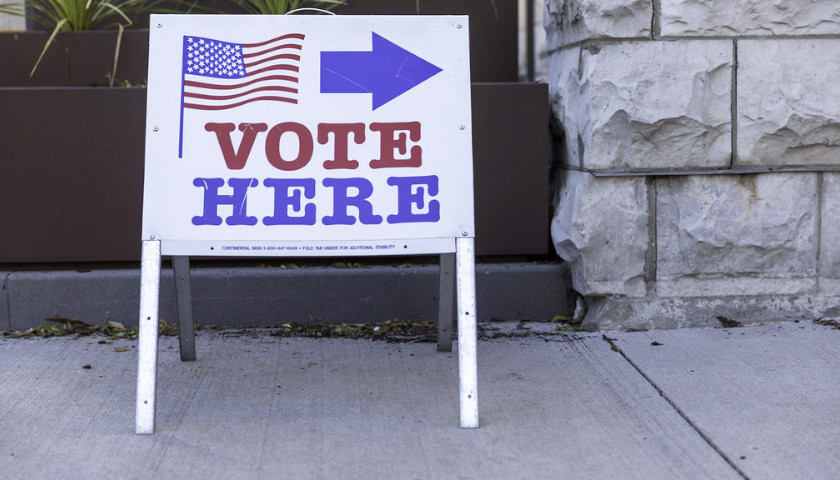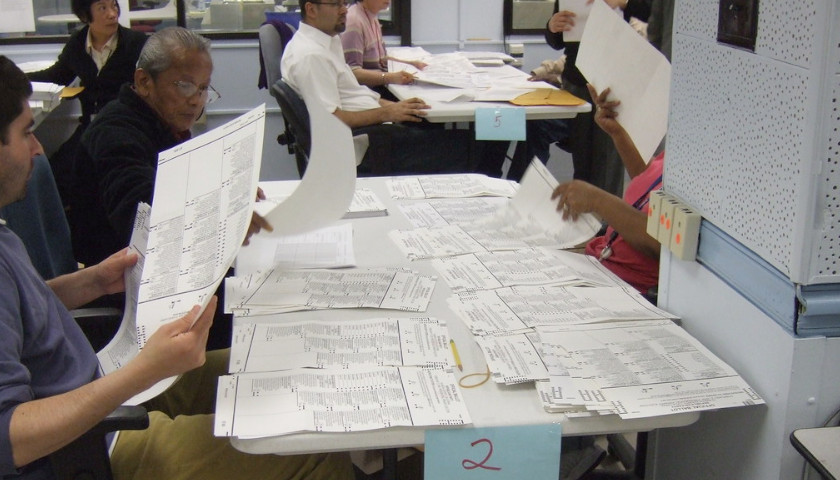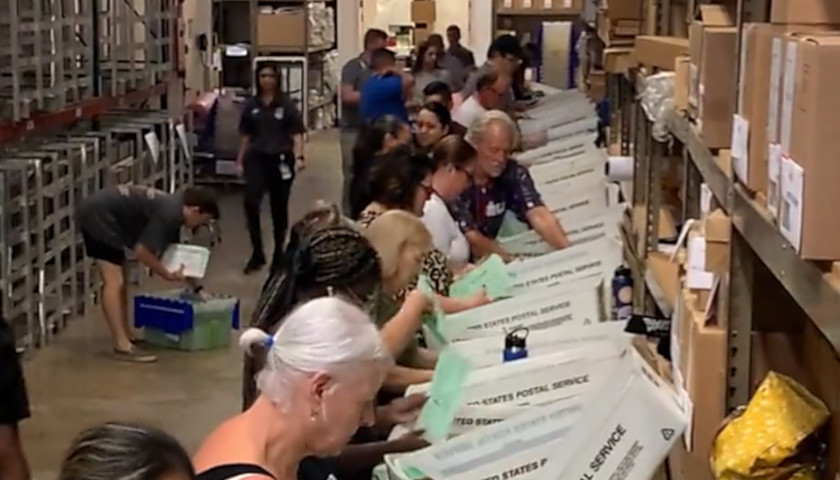Election officials around the country, including the Maricopa County Recorder, saw a flurry of public records requests at the end of August asking for the “cast vote record” (CVR) from the 2020 presidential election. The requests came after My Pillow CEO Mike Lindell, who is actively investigating election discrepancies in 2020, urged attendees at his Moment of Truth Summit in August to request them. The CVR reveals the type of ballot used by each voter and how they cast their votes, without exposing their identity.
Walter C. Daugherity, who has a background in computers and engineering, two degrees from Harvard University, and experience in artificial intelligence and quantum computing, submitted a declaration about his analysis of CVRs in a lawsuit filed by Trump-endorsed gubernatorial candidate Kari Lake and Trump-endorsed candidate for State Representative Mark Finchem (R-Oro Valley), who is running for Arizona secretary of state. Their complaint aims to stop the use of electronic voting machine readers in the November 8 election.
In his declaration, Daugherity stated his analysis “shows to a reasonable degree of scientific and mathematical certainty that vote-counting by electronic voting machines used in Maricopa County, Pima County, and other counties throughout the United States that I have examined was manipulated and tightly controlled to reach predetermined outcomes.”
Daugherity highlighted what he saw as “systematically implausible” blocks of ballots that gradually decreased in a neat downward line, decreasing support for Republican candidates as the batches got further along. Instead of jumping around like “63 percent or 85 percent or some other value,” the batches revealed “the first block of ballots being 75 percent for a candidate, the next block of ballots being 74 percent for the candidate, the next block of ballots being 73 percent, and so on.”
Daugherity said what he found was consistent with what a whistleblower in Pima County told Finchem. The whistleblower’s email, which was included in the lawsuit as an exhibit, stated that “35,000 fraud votes” were added to the early ballot totals released at 8 p.m. on election night for each Democratic candidate in the Pima County 2020 election.
Lindell believes CVRs are “the clearest indicators of whether or not there is machine-based election fraud.” He is compiling the CVRs for each state in a database. The Arizona file contains the CVRs from Maricopa, Pima, Yuma, and Santa Cruz counties. He described the CVR as containing the CVR number, the tabulator ID, the counting group (how the vote was cast), the precinct ID, and ballot type.
He said some counties are refusing to turn over CVRs.
Maricopa County Recorder Stephen Richer, who denies there was fraud in the 2020 presidential election even though he was not in office at that time, complained on social media in late August that he’d received 173 requests in the last week for the CVR, and hundreds of requests within the last month. “In the past, the @RecordersOffice typically didn’t receive 173 records requests in a year,” he wrote.
He blamed an email that was allegedly “going around to different @MaricopaGOP districts” that instructed people to “bombard” his office with requests since the data would be “destroyed Sept. 1.” Someone tweeted him in response asking to see the email and he didn’t respond.
Richer, who frequently ridicules voters concerned about voter fraud on Twitter, tweeted his disdain for the requests. “Very, very, very few people know how to use this,” referring to the cast vote record. Another user responded and helpfully explained the purpose of the CVR.
“The adjudication results are in the CVR,” a user named TheActuator tweeted. “It shows the original ballot and the ballot after adjudication.”
Someone else suggested, “Have you considered posting the CVR online immediately after the end of voting? This would short-circuit the need for requests and make the remaining ones easy to fulfill.” Richer did not publicly respond to either reply. Some clerks around the country have made the CVRs available on their websites.
Richer added reassurance that there was no timing urgency to the requests, since he wasn’t intending on deleting the files for another two months. “ARS 16-624 requires that we keep records from the November 2020 election for 24 months, so I don’t know where that Sept. 1 date is coming from,” he tweeted.
He didn’t mention the fact that federal law only requires election data from federal elections such as the presidential election to be retained for 22 months, which would have explained the two-month difference.
Due to concerns about the electronic voting machines, Arizona Corporation Commissioner Jim O’Connor started an effort to urge county election officials in Arizona not to use them for the November 8 election. A group of concerned voters filed legal writs attempting to halt their use. O’Connor is holding a symposium with experts on Saturday to discuss the problems with electronic voting machines.
– – –
Rachel Alexander is a reporter at The Arizona Sun Times and The Star News Network. Follow Rachel on Twitter. Email tips to [email protected].
Photo “Vote Here Sign” by Lorie Shaull. CC BY 2.0.





